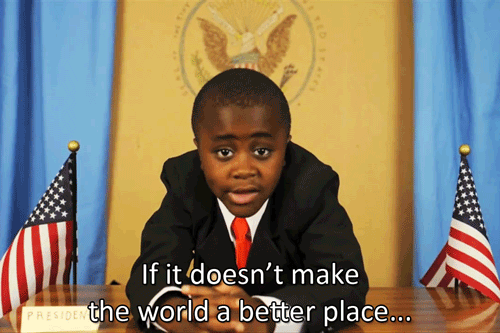Governments Aren’t Doing Much To Halt Global Warming But There Is Hope In The Business World. Here
Governments aren’t doing much to halt global warming but there is hope in the business world. Here are the companies that are facing up to the challenge.
Not my usual climate post. But, BMW is #1.
More Posts from Dotmpotter and Others

The New England Climate Adaptation Project (NECAP) got local citizens and officials in four coastal towns to engage in role-playing games about climate change tailored to their communities, while conducting local polling about attitudes and knowledge about climate risks. In so doing, the project helped the towns reach new conclusions about local initiatives to address the threats posed by climate change— which in coastal communities may include rising sea levels and increased storm surges that can lead to flooding.
“One hour of conversation can completely alter people’s sense [and show] that this is a problem they can work on locally,” says Lawrence Susskind, the Ford Professor in Urban Studies in MIT’s Department of Urban Studies and Planning (DUSP), who led the project and has now co-authored a new book detailing its results. “There are a bunch of things local governments can do, and people can do for themselves — that communities can do.”
The findings stem from years of research and organizing in four places: Wells, Maine; Dover, New Hampshire; Barnstable, Massachusetts; and Cranston, Rhode Island. The new book on the effort, “Managing Climate Risks in Coastal Communities,” has just been released by the academic publisher Anthem Press.
Among the many findings of the project is that residents of these coastal communities were typically far more concerned about the consequences of climate change than local politicians realized.


Silicon Carbide (SiC) is a key building block for next-generation devices. It takes features from diamonds, one of the toughest materials in the world, and combines them with features of silicon, our ubiquitous semiconductor technology in electronics to make a very new kind of material for power electronics. SiC can more efficiently handle higher voltage and three times the amount of energy compared to silicon chips, allowing us to run everything from locomotives to planes and wind farms faster and more efficiently.


Richard Feynman’s legendary lectures on physics, all fifty-two chapters, are now available to read online via Caltech.
Of course, you can always watch seven of them in video form thanks to Bill Gates.
If anyone needs me, I’ll be in my physics bunk.





Green Lake (Grüner See) in Styria, Austria, is an amazing place. For half of the year, it’s an underwater village with fish swimming through the branches of trees, a floor covered in grass, benches and bridges.
For the other half, it is over ground. In the frozen winter months the area is almost completely dry and is a favorite site for hikers. As the temperature begins to rise in spring, the ice and snow on the mountaintops begins to melt and runs down into the basin of land below. The waters are at their highest in June when it becomes a mecca for divers keen to explore the rare phenomenon.










Brand: Christie Brown
Designer: Aisha Obuobi
Coupe de Classe Winter 2015 Collection
Tumblr: cutfromadiffcloth.tumblr.com | Twitter: @IAM_CFDC | Instagram: @IAMCFDC | Facebook: CUT FROM A DIFFERENT CLOTH | Website: www.cutfromadiffcloth.com

Three quarters of Britain’s juniper is found in Scotland, where it’s important not only to local gin production but also to wildlife, such as the juniper shield bug. Plantlife Scotland has published a free guide to help both professional and amateur botanists and horticulturalists identify, survey and protect the plants. Anyone can participate in the group’s survey and guardianship project.
(via Protect British juniper or risk losing gin’s distinctive flavour (Wired UK))
Big Data's religious faith denies the reality of failed promises, privacy Chernobyls

Maciej Ceglowski (previously) spoke to a O'Reilly’s Strata Big Data conference this month about the toxicity of data – the fact that data collected is likely to leak, and that data-leaks resemble nuclear leaks in that even the “dilute” data (metadata or lightly contaminated boiler suits and tools) are still deadly when enough of them leak out (I’ve been using this metaphor since 2008).
Ceglowski also raises a critical point: Big Data has not lived up to its promises, especially in life sciences, where we were promised that deep analysis of data would yield up new science that has spectacularly failed to materialise. What’s more, the factors that confound Big Data in life science are also at play in other domains, including the business domains where so much energy has been expended.
The key point is that people react to manipulation through Big Data: when you optimize a system to get people to behave in ways they don’t want to (to spend more money, to click links they aren’t interested in, etc) then people adapt to your interventions and regress to the mean.
Big Data’s advocates believe that all this can be solved with more Big Data. This requires them to deny the privacy harms from collecting (and, inevitably, leaking) our personal information, and to assert without evidence that they can massage the data so that it can’t be associated with the humans from whom it was extracted.
As Ceglowski puts it, ‘people speak of the “data driven organization” with the same religious fervor as a “Christ-centered life”.’
Read the rest

Next-Gen Pelamis Wave Energy Converter Successfully Passes Initial Tests

Not measured by money but by positive influence :) respect.


-
 dotmpotter reblogged this · 9 years ago
dotmpotter reblogged this · 9 years ago -
 naris6bc liked this · 11 years ago
naris6bc liked this · 11 years ago -
 landscape-a-design reblogged this · 11 years ago
landscape-a-design reblogged this · 11 years ago -
 lafaerienoire liked this · 11 years ago
lafaerienoire liked this · 11 years ago -
 freedomforeverybody118 liked this · 11 years ago
freedomforeverybody118 liked this · 11 years ago -
 carolynhm liked this · 11 years ago
carolynhm liked this · 11 years ago -
 wholelottastrange reblogged this · 11 years ago
wholelottastrange reblogged this · 11 years ago -
 sensiblestupidity reblogged this · 11 years ago
sensiblestupidity reblogged this · 11 years ago -
 silas216 liked this · 11 years ago
silas216 liked this · 11 years ago -
 comfortatanycost-blog reblogged this · 11 years ago
comfortatanycost-blog reblogged this · 11 years ago -
 etheleato reblogged this · 11 years ago
etheleato reblogged this · 11 years ago -
 etheleato liked this · 11 years ago
etheleato liked this · 11 years ago -
 horsemissile reblogged this · 11 years ago
horsemissile reblogged this · 11 years ago -
 robingoodfellow liked this · 11 years ago
robingoodfellow liked this · 11 years ago -
 driftwu reblogged this · 11 years ago
driftwu reblogged this · 11 years ago -
 www-outerspacepi reblogged this · 11 years ago
www-outerspacepi reblogged this · 11 years ago -
 www-outerspacepi liked this · 11 years ago
www-outerspacepi liked this · 11 years ago -
 ornery-blog reblogged this · 11 years ago
ornery-blog reblogged this · 11 years ago -
 ornery-blog reblogged this · 11 years ago
ornery-blog reblogged this · 11 years ago -
 veryfemmeandantifascist liked this · 11 years ago
veryfemmeandantifascist liked this · 11 years ago -
 the-murdog liked this · 11 years ago
the-murdog liked this · 11 years ago -
 steadyupmorespeed reblogged this · 11 years ago
steadyupmorespeed reblogged this · 11 years ago -
 humboldthunnie-blog liked this · 11 years ago
humboldthunnie-blog liked this · 11 years ago -
 jeedgan liked this · 11 years ago
jeedgan liked this · 11 years ago -
 kaaate-the-great liked this · 11 years ago
kaaate-the-great liked this · 11 years ago -
 ilfinocchioparla reblogged this · 11 years ago
ilfinocchioparla reblogged this · 11 years ago -
 ilfinocchioparla liked this · 11 years ago
ilfinocchioparla liked this · 11 years ago -
 resite-festival reblogged this · 11 years ago
resite-festival reblogged this · 11 years ago -
 resite-festival reblogged this · 11 years ago
resite-festival reblogged this · 11 years ago -
 resite-festival liked this · 11 years ago
resite-festival liked this · 11 years ago -
 brod623 liked this · 11 years ago
brod623 liked this · 11 years ago -
 leahclaire reblogged this · 11 years ago
leahclaire reblogged this · 11 years ago -
 feulserrand liked this · 11 years ago
feulserrand liked this · 11 years ago -
 attackoftheglitterbitch reblogged this · 11 years ago
attackoftheglitterbitch reblogged this · 11 years ago -
 whynotsaturday reblogged this · 11 years ago
whynotsaturday reblogged this · 11 years ago -
 dietcodexes liked this · 11 years ago
dietcodexes liked this · 11 years ago -
 origamiunicorn liked this · 11 years ago
origamiunicorn liked this · 11 years ago -
 thepinkbubble reblogged this · 11 years ago
thepinkbubble reblogged this · 11 years ago -
 sylviac reblogged this · 11 years ago
sylviac reblogged this · 11 years ago
